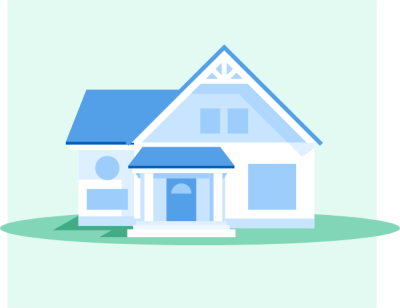How Much Mortgage Can I Get With a $70,000 Salary?




Here’s one way to estimate how much mortgage you can get with a salary of $70,000:
Calculate your monthly income. Divide your annual salary of $70,000 by 12 to get your monthly pay: $5,833.
Find your monthly mortgage max. No more than 39% of your income can go toward your mortgage payment, including property taxes and utilities, per a common lender measurement called your gross debt service ratio. A monthly salary of $5,833 multiplied by 0.39 is $2,275.
Determine your price range. If you were approved for a 25-year mortgage with an interest rate of 4%, that $2,275 monthly payment translates into a home price of about $335,000 with a $50,000 down payment.
But these numbers may not apply to everyone who makes $70,000 per year.
How much can you afford?
Use NerdWallet's affordability calculator
How your finances affect home affordability
The overall state of your personal finances goes well beyond your income and has a big effect on the amount of mortgage you can get with a $70,000 salary.
Your credit score affects your interest rate
One reason the example above does not apply to everyone making $70,000 is that it assumes a mortgage interest rate of 4%. This rate may not be available when you apply for a mortgage. And even if lenders advertise a 4% rate, your entire mortgage application, which includes your credit score, will be reviewed before you receive an offer. A credit score that’s good but not great may result in a rate above the lowest advertised rates.
Taxes, insurance, maintenance and fees
Another reason the estimate may not apply to you is that it includes property taxes of $2,500 per year and about $200 in monthly utilities. Your housing-related expenses might be different depending on where in Canada you live.
Debt ratios
Lenders in Canada limit the maximum amount you can borrow based on two debt measurements.
Gross debt service ratio
No more than 39% of your income can go toward your mortgage payment, taxes and utilities.
Total debt service ratio
In addition, if you have other monthly debt payments (student loans, credit card payments), lenders won’t want the total of these payments plus any mortgage payment to exceed 40-44% of your income.
Sample housing budgets
To illustrate how variables beyond income can affect how much mortgage you can get, consider two people with identical $50,000 incomes:
Person A | Person B | |
|---|---|---|
Annual salary | $70,000 | $70,000 |
Car payment | $0 | $500 |
Credit card debt payment | $0 | $250 |
GDS ratio limit | $2,275 | $2,275 |
TDS ratio limit | $2,567 | $1,817 |
This example doesn’t even take into account differences in credit scores. The better your score, the lower the rate you’ll get. Even if two people can afford the same monthly payment, the person with the better (higher) credit score can potentially afford a more expensive home if less of that monthly payment is going toward interest.
What you can do next
To get an answer more closely aligned to your situation, you’ll want to use a mortgage affordability calculator. An affordability calculator lets you control more variables when estimating mortgage payments.
If your estimated price range doesn’t match your hopes, here’s what you can do:
Improve your credit. Reducing or eliminating credit card debt is a good place to start.
Reduce set monthly expenses. For example, if you have a large monthly car payment, would you consider swapping for something less expensive?
Look elsewhere. Do you want a bigger budget to afford a certain neighborhood? Keep an open mind and expand your search. Tap the expertise of a real estate agent if you haven’t already.
Keep saving. More money in the bank is a great way to increase your options in the future.
Stay patient. Buying a home can be hard, and it doesn’t always happen right away. A drop in interest rates or a new job are just two examples of events that can change your prospects.
Learn how to apply for a mortgage
Your home buying journey goes through these five steps
DIVE EVEN DEEPER

 Clay Jarvis
Clay Jarvis
 Clay Jarvis
Clay Jarvis

 Clay Jarvis
Clay Jarvis